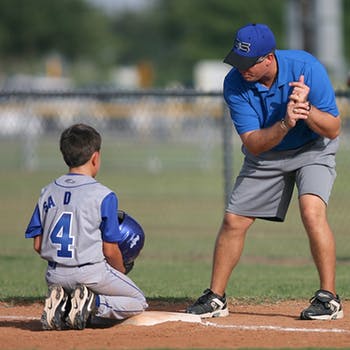Trainers are the connection of youth with sports, they are the ones who build the basics of physical education and educate the discipline. Nowadays there are many aspects of the work of a coach, who are not only supplemented by deep-seated sports knowledge in the discipline he trains. A coach is an example for his athletes, understands them, guides them rightly and in the same way decides to use all the resources around him to serve the purpose.
A handsome trainer teaches players to believe in themselves. Young players have many reasons to join the training, but often they are disappointed with themselves and their abilities. The coach should be attentive to the mood swings of his players, and at the right moment he must convey confidence, learn the athlete to improve and that mistakes are necessary in order to improve. In this way, the coach has not only fulfilled his task in terms of sports education, but has also become a guide to the players – as a parental figure.
A neat trainer does not use “humiliation” techniques. To teach different techniques from different disciplines, a trainer adjusts the teaching method to the pace of the players without pressure. It should be understood that a player learns more from practice than from shame in front of their friends. Trainers often use such embarrassing techniques and compare athletes with the idea that young people will learn this way. In this way they contribute to a deterioration of the situation until the player’s loss of initiative or even more agressive psychological problems.
A trainer focuses on training, leaving behind his personal life. Mixing private life with the professional is not always a good idea, more so in the profession of a sports coach. The coach’s ego should not exist on the pitch with his players because it often turns to conflict. The coach should not feel threatened by the player. A neat player is the fruit of a skillful trainer, so victories are celebrated together.
A neat coach communicates with the players and their parents. Communication is the secret weapon of a coach who knows how to manage the team, focuses on the values of each player and maintains fresh relationship with the players’ parents. Depending on the age of the team, the coach chooses the language and manner of communication with the players, as with the parents. A good coach helps parents see the progress of their children and makes them partners in the mission, not enemies.
There are a thousand formulas that help the trainer be productive, but it is important to maintain an open communication line. In this way the coach understands the weaknesses and strengths of his team, understands the needs of the players and reacts in the right manner at the right time.


